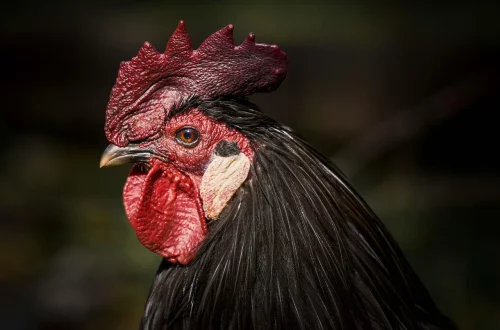
Why Does My Dog Snore and What You Need to Know About It
Dogs are often considered part of the family, and just like any beloved family member, they have their quirks and habits. One common behavior that many dog owners notice is snoring. While it might seem amusing at first, it can raise questions about your furry friend’s health and comfort. Snoring in dogs can be a phenomenon that varies significantly from one breed to another, with some breeds being more prone to this behavior than others.
Understanding why your dog snores can help you better appreciate their sleeping habits and ensure they are getting restful sleep. Whether your dog is a tiny Chihuahua or a large Great Dane, the sound of snoring can be both endearing and concerning. It’s essential to consider various factors, including anatomy, sleeping position, and even underlying health issues. As a dog parent, being aware of these aspects can help you keep your dog healthy and happy.
This article will delve into the reasons behind canine snoring, how it relates to different dog breeds, and what you should do if your dog’s snoring becomes excessive or changes suddenly. So, let’s explore this fascinating topic to give you a clearer understanding of your dog’s nighttime symphony.
Understanding Canine Anatomy and Snoring
To comprehend why dogs snore, it’s essential to look at their anatomy. Dogs have unique physical characteristics that can influence their breathing patterns during sleep. The shape of their skull, the size of their airways, and the structure of their soft palate can all contribute to snoring.
For instance, brachycephalic breeds, such as Bulldogs and Pugs, are particularly prone to snoring due to their short noses and flat faces. The anatomical structure of these breeds can lead to narrowed airways, making it difficult for them to breathe freely. When they fall into a deep sleep, the relaxation of the throat muscles can further inhibit airflow, resulting in snoring.
Additionally, overweight dogs may also be more prone to snoring. Excess body weight can put extra pressure on the airways, leading to obstructions during sleep. If your dog is snoring and is also carrying extra pounds, it might be worth consulting your veterinarian about a weight management plan.
On the other hand, dogs with longer snouts, like Greyhounds and Collies, generally have more open airways and are less likely to snore. However, this doesn’t mean that snoring is exclusive to certain breeds. Dogs of all shapes and sizes can snore, and it can be influenced by various factors, including their sleeping position.
Dogs often choose to sleep in positions that may constrict their airways, leading to snoring. For example, if your dog sleeps on their back with their head tilted, this position can cause the tongue to fall back, partially blocking the airway. Understanding these anatomical factors can help you identify whether your dog’s snoring is a normal part of their behavior or if it warrants further investigation.
Common Causes of Snoring in Dogs
Beyond anatomical features, several common causes can lead to snoring in dogs. Allergies, respiratory infections, and environmental factors can all play a significant role in your dog’s nighttime sounds.
Allergies are often overlooked as a cause of snoring. Just like humans, dogs can suffer from allergies to pollen, dust, mold, and even certain food ingredients. When a dog experiences an allergic reaction, it can lead to inflammation in the nasal passages. This inflammation can obstruct airflow, leading to snoring when the dog sleeps. If you suspect allergies might be the culprit, observing your dog for other symptoms, such as itchy skin or watery eyes, can provide additional clues.
Respiratory infections, such as kennel cough or canine influenza, can also lead to snoring. These infections can cause inflammation in the throat and nasal passages, making it difficult for your dog to breathe comfortably while sleeping. If your dog displays other symptoms like coughing, lethargy, or loss of appetite, it’s crucial to seek veterinary attention.
Environmental factors, such as sleeping in a dusty or smoky area, can also contribute to snoring. Ensuring your dog has a clean, comfortable sleeping environment can help minimize snoring caused by irritants.
Another important aspect is the sleeping position of your dog. Some dogs may snore simply because of the position they choose to sleep in. If your dog frequently snores, you might want to observe their sleeping habits. Adjusting their sleeping position or providing them with a more comfortable bed can sometimes reduce the frequency of snoring.
When to Be Concerned About Your Dog’s Snoring
While snoring can be a normal behavior for many dogs, there are certain situations where it may indicate an underlying health issue. If your dog suddenly starts snoring after previously not doing so, or if the snoring is accompanied by other concerning symptoms, it’s essential to take notice.
Excessive snoring can be a sign of breathing difficulties or other health concerns. If your dog is struggling to breathe, shows signs of distress, or has a change in their usual behavior, it’s crucial to consult your veterinarian. Conditions such as sleep apnea can occur in dogs, leading to disrupted sleep and potential long-term health issues.
Another factor to consider is the frequency and intensity of the snoring. If your dog’s snoring becomes louder or more frequent, it may warrant further investigation. It’s worth noting that while some snoring is normal, a significant change in your dog’s snoring patterns could indicate a problem that needs to be addressed.
Additionally, if your dog exhibits signs of discomfort during sleep, such as restlessness or frequent waking, it could be a sign that their snoring is affecting their quality of sleep. Dogs need restorative sleep for their overall health, so ensuring they sleep comfortably is vital.
Monitoring your dog’s health and behavior regularly can help you determine if their snoring is a benign quirk or a sign of something more serious. Keeping a log of any changes, including their sleeping patterns and overall health, can provide valuable information for your veterinarian.
Tips for Reducing Snoring in Dogs
If you find that your dog’s snoring is becoming bothersome or you’re concerned about its implications, there are several strategies you can implement to help reduce it.
Firstly, maintaining a healthy weight for your dog is one of the most effective ways to reduce snoring. If your dog is overweight, consider working with your veterinarian to develop a weight loss plan that includes a balanced diet and regular exercise. Losing excess weight can relieve pressure on the airways, making it easier for your dog to breathe while sleeping.
Additionally, providing your dog with a comfortable sleeping environment can make a significant difference. Ensure their bed is supportive and allows them to sleep in a position that doesn’t restrict airflow. You might experiment with different types of bedding or sleeping arrangements to find what works best for your dog.
Another practical tip is to adjust your dog’s sleeping position. If they tend to sleep on their back, gently encouraging them to lie on their side may help alleviate snoring. You can try using a pillow or bolster to support their body in a side-sleeping position.
Furthermore, keeping your home clean and free from allergens can also help minimize snoring caused by environmental irritants. Regular cleaning and ensuring good air quality in your home can create a healthier sleeping environment for your dog.
Lastly, avoid exposing your dog to secondhand smoke or other pollutants, as these can exacerbate breathing issues. By taking these steps, you can help your dog achieve a more peaceful night’s sleep, reducing the likelihood of snoring.
In conclusion, while snoring is a common occurrence in dogs, it’s essential to understand the factors that contribute to it. Monitoring your dog’s health and behavior can provide valuable insights, and if you have any concerns, don’t hesitate to consult your veterinarian. Remember, this article is not a substitute for professional medical advice, and if your dog experiences any concerning symptoms, always seek guidance from a qualified veterinarian.




